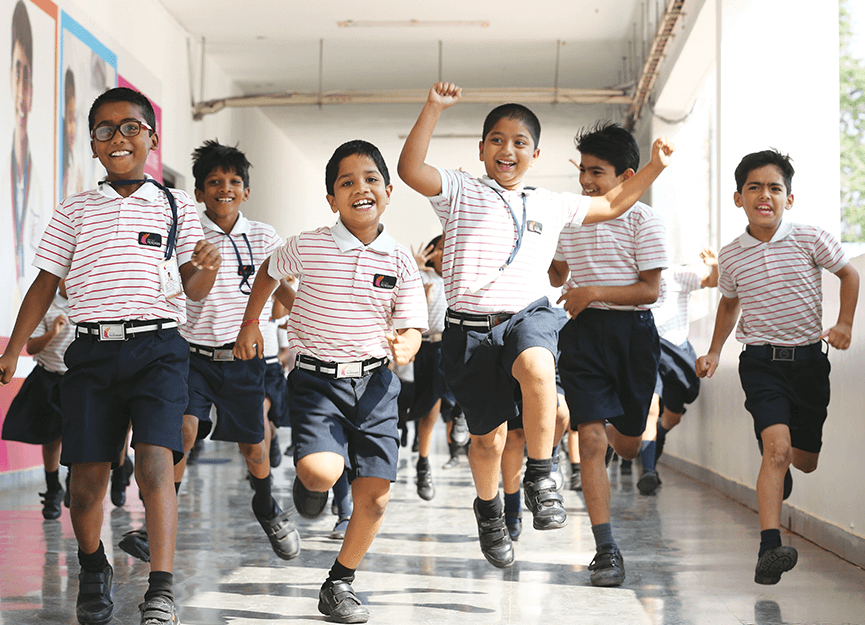Why a Holistic Approach in Preparatory Schools is Essential for Young Learners
Preparing young children for the future requires more than just academic rigor. A holistic approach in preparatory schools emphasizes the development of emotional intelligence, social skills, creativity, and physical health alongside academics. SSRVM (Sri Sri Ravishankar Vidya Mandir) exemplifies this philosophy by nurturing young learners into well-rounded individuals. Here’s why this approach is indispensable for a child’s growth.
What Is a Holistic Approach in Preparatory Schools?
A holistic approach focuses on developing the whole child rather than prioritizing academics alone. This includes nurturing:
Emotional intelligence: Building self-awareness and empathy.
Social skills: Encouraging teamwork and communication.
Physical health: Promoting fitness and well-being.
Creative expression: Stimulating imagination and problem-solving skills.
Moral values: Teaching kindness, integrity, and responsibility.
Preparatory schools like SSRVM integrate these aspects into their curriculum, creating a nurturing environment for young learners.
Benefits of a Holistic Approach for Young Learners
1. Promotes Emotional Well-being
Children in their early years often grapple with emotions they cannot fully understand. A holistic curriculum:
- Teaches emotional awareness and regulation.
- Encourages open communication about feelings.
- Builds resilience through mindfulness practices, like yoga and meditation.
SSRVM incorporates meditation sessions, helping children cultivate inner peace and focus.
2. Enhances Social Skills
Interacting with peers in a supportive setting teaches children how to:
- Share and cooperate in group activities.
- Resolve conflicts amicably.
- Develop empathy and understanding for others.
By fostering a collaborative environment, holistic preparatory schools prepare children for teamwork in all aspects of life.
3. Fosters Creativity and Critical Thinking
A holistic curriculum emphasizes creative problem-solving and innovation through:
- Hands-on projects and experiments.
- Art, music, and storytelling activities.
- Play-based learning that encourages exploration and imagination.
This not only strengthens academic foundations but also nurtures out-of-the-box thinking.
4. Encourages Physical Development
Physical fitness is an integral part of holistic education. Activities such as yoga, dance, and sports:
- Improve motor skills and coordination.
- Instill the importance of healthy living.
- Boost energy levels, aiding focus and learning.
SSRVM’s campuses offer state-of-the-art sports facilities, ensuring students stay active and healthy.
5. Cultivates Moral and Ethical Values
A well-rounded child is one who understands the importance of values. Holistic education instills:
- Integrity and honesty.
- Respect for diversity and inclusivity.
- A sense of responsibility toward society and the environment.
At SSRVM, students learn these values through stories, group discussions, and community service projects.
The Role of Teachers in Holistic Education
Teachers are central to implementing a holistic approach. Their responsibilities extend beyond academic instruction to:
- Being role models for moral and ethical behavior.
- Identifying and addressing individual student needs.
- Encouraging curiosity and enthusiasm for learning.
SSRVM’s trained educators create a safe and supportive atmosphere that nurtures every aspect of a child’s growth.
How SSRVM Exemplifies Holistic Education
SSRVM is a pioneer in holistic education, ensuring students receive balanced development in all spheres. Key features of its approach include:
Integrated curriculum: Combining academics with arts, sports, and values education.
Focus on mindfulness: Regular yoga and meditation sessions.
Cultural enrichment: Activities that promote Indian traditions alongside global exposure.
Community engagement: Encouraging students to participate in environmental and social initiatives.
By creating a harmonious blend of modern education and traditional values, SSRVM prepares children for a fulfilling life.
FAQs
1. Why is a holistic approach crucial in preparatory schools?
Ans - A holistic approach addresses all facets of a child’s growth—intellectual, emotional, social, and physical—ensuring balanced development.
2. What activities are included in holistic education?
Ans - Holistic education integrates academics, arts, sports, yoga, and value-based learning to nurture well-rounded individuals.
3. How does SSRVM support holistic development?
Ans - SSRVM offers a unique curriculum that blends academics with mindfulness, creativity, and community engagement, ensuring all-round growth.
4. What role do teachers play in holistic education?
Ans - Teachers act as guides and mentors, focusing on both academic and personal development, while fostering curiosity and emotional well-being.
5. How does holistic education benefit children’s future?
Ans - It equips children with the skills and mindset needed to excel academically, socially, and emotionally, preparing them for life’s challenges.
6. Is SSRVM a good example of holistic education in India?
Ans - Yes, SSRVM exemplifies holistic education by providing a nurturing environment that focuses on balanced development through a blend of traditional and modern methods.
Conclusion
A holistic approach in preparatory schools ensures that young learners grow into well-rounded individuals equipped to face the challenges of tomorrow. Schools like SSRVM exemplify this philosophy, providing an enriching environment that nurtures academic excellence, emotional intelligence, creativity, and ethical values. By focusing on the development of the whole child, holistic education prepares students not just for exams but for life.

